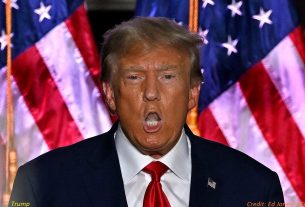The Japanese Ministry of Justice said three prisoners were executed on death row on Tuesday which is the first execution in Japan since December 2019.
According to the Xinhua/NAN agency report, this was the first execution under the Prime Minister Fumio Kishida administration.
The three were identified as Yasutaka Fujishiro, 65, who killed seven of his relatives in Hyogo Prefecture in 2004, Tomoaki Takanezawa, 54, and Mitsunori Onogawa, 44, who were convicted of killing two employees at two separate pachinko parlours in Gunma Prefecture in 2003.
Fujishiro was sentenced to death by the Kobe District Court in western Japan in May 2009, and the decision was finalised in June 2015 after an appeal was rejected by the Supreme Court.
The Saitama District Court near Tokyo sentenced Takanezawa and Onogawa, who also robbed one of the victims and stole money from one of the pachinko parlours to death.
The death penalty on Takanezawa was finalised in July 2005 after he withdrew his appeal, while Onogawa’s sentence was finalised in June 2009 at the Supreme Court.
Following the executions, the number of inmates sitting on death row in Japan stands at 107.
After the executions, Deputy Chief Cabinet Secretary Seiji Kihara told reporters it is “not appropriate to abolish (the country’s death penalty system) considering the current situation in which heinous crimes continue to occur.”
“Many Japanese think the death penalty is unavoidable in the case of extremely malicious crimes,’’ Seiji said.
Japan has resisted calls for abolition of the capital punishment, and the latest executions are the first under the new prime minister,
According to The Guardian of London, as one of only a small number of developed countries that still uses the death penalty, Japan has resisted calls for abolition from the European Union, human rights groups and thousands of Japanese lawyers and legal professionals.
It reports also that Tuesday’s executions were the first under the new prime minister, Fumio Kishida.
Japan hanged three death row inmates on 26 December 2019, and 15 a year earlier, including 13 members of the doomsday cult that carried out a deadly sarin gas attack on the Tokyo subway in 1995.
Japanese government politicians point to high levels of public support for the death penalty, amid criticism that inmates typically spend years in solitary confinement and are given only a few hours’ notice of their execution.
In a 2009 report, Amnesty International accused Japan of subjecting death row inmates to “cruel, inhuman and degrading” punishment.
The deputy chief cabinet secretary, Seiji Kihara, would not comment on Tuesday’s reports, but defended the use of the death penalty in Japan, where more than 100 people are awaiting execution.
“Whether to keep the death sentence system or not is an important issue that concerns the foundation of Japan’s criminal justice system,” he told reporters.
“Given that atrocious crimes keep occurring one after another, it is necessary to execute those whose guilt is extremely grave, so it is inappropriate to abolish capital punishment.”
Doubts about the safety of convictions that carry the death sentence grew in 2014, when Iwao Hakamada was released after spending more than 45 years on death row.
Hakamada, who is 85 and in poor health had been sentenced to hang in 1968 for the murders two years earlier of a company president, his wife and their two children.
The former professional boxer and his supporters said he confessed to the murders only after allegedly violent police interrogations, adding that evidence in his case had been planted.
In December last year, Japan’s supreme court overturned a ruling blocking a retrial for Hakamada – a move that could lead to an acquittal.
Last month, two death row inmates in Japan launched a legal action against the government, claiming that the practice of not informing inmates of their execution until only hours before they are hanged was “inhumane”.
The prisoners have demanded and end to the practice and ¥22m (£146,000) in compensation.
Xinhua/NAN/The Guardian of London





